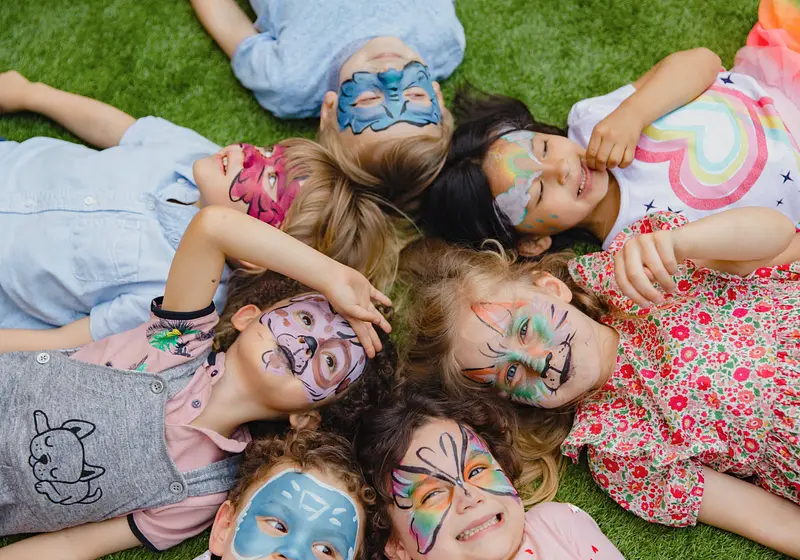In this chaotic time where many people are cooped up in their homes, finding interesting ways to pass the time is tough. Jigsaw puzzles can help combat boredom in a time when many people are having trouble finding something to do. Once you get started on a jigsaw puzzle, you may find that your late-night Netflix binge time has turned into hours of a methodical and relaxing puzzling habit.
Let us slide into your dms 🥰
Get notified of top trending articles like this one every week! (we won't spam you)The Benefits of Puzzling
The benefits of doing jigsaw puzzles are abundant, which may be surprising for such a calm activity. Sitting down with a captivating jigsaw puzzle is beneficial not just for combatting boredom, but also for your mental health.
Many people turn to puzzles to take a break from the stresses of everyday life, which can include jobs, school work, socializing, and social media. Jigsaw puzzles offer a feel-good alternative to passing time with unproductive activities.
For those afflicted by anxiety, puzzling can create an overall calming feel to help deal with worrisome thoughts. Either as a form of distraction or as a way to cool off from some of the heated intrusive thoughts that plague many individuals, doing a jigsaw puzzle creates a calming effect on those who choose the activity.
Although some turn to puzzling as a break from socialization, it can just as easily be used to increase socialization between family members. When a teenager usually on their phone takes the time to do a puzzle with their siblings, parents, or grandparents, the conversations and connections that can result from this create bonds that last longer than it takes to put together a puzzle.
The connections with family members that are created over a short period can be the bridge to talking about bigger issues, such as mental challenges that some may not have felt comfortable talking about before.

Take the Quiz: Discover Your Ideal Stress-Relieving Hobby
Everyone deals with stress differently, and finding the right hobby can help you relax and unwind. Take this quiz to find out which stress-relievin...
How to Get Started
Getting started isn't always easy. For some, starting a new hobby can be daunting. Jigsaw puzzles, however, are not like any other hobby out there.
You cannot fail at a jigsaw puzzle, and no puzzle is impossible. If you keep those two things in mind, then a beginner can easily avoid frustration and be able to reap the aforementioned benefits.
The first step in anyone's journey with puzzling is to find an image that speaks to you. For example, if you're a fan of art, try out this Norman Rockwell puzzle. For those who feel moved by scenic views, this Santorini landscape is a beautiful place to jumpstart your new hobby. No matter what you choose to put together, let the beauty of the finished picture inspire you to push through any and all frustrating moments.
One consideration to make when picking out a puzzle is the number of pieces. If the first puzzle you choose has 1500 pieces, which can take a beginner months to complete, then you may not find yourself returning to the activity.
If, however, you choose a puzzle with few enough pieces to gain confidence and you take the time to learn what makes puzzling fun for you, then you will find your experience to be much smoother and significantly less frustrating. Start with 100 or 250 pieces, then increase to 500 or more pieces from there. In no time, you'll be finishing 1000-piece puzzles in a matter of days.
The second step is to find what about jigsaw puzzles is so appealing to you. Is it the calm, methodical sorting? Or could it be the accomplishment of overcoming a challenge?
No matter the motivation behind starting, find your motivation to finish it. It's true, jigsaw puzzling can get a little boring, but putting on your favorite playlist or listening to that podcast you've been meaning to get through can make time fly.
Working on a jigsaw puzzle opens the door to so many multitasking activities. You could even paint or sketch as you do your puzzle, alternating between activities when you hit a wall in either. Sometimes, it's best to just sit and think, not worrying about how many pieces are left, just focusing on what you have done and continue to do. Putting together a jigsaw puzzle is not limited to the puzzle pieces, and can be a time to expand your mind and gain a new perspective.
Tips for Avoiding Frustration
With all of its benefits for your mental health, doing a jigsaw puzzle will not help if all you feel is frustration. To avoid this, and truly make the most of your experience, here are some tips to avoid feeling indefinitely frustrated with your new hobby.
When starting, sort the inner pieces as you look through the box for edge pieces. If you notice one area of the puzzle that has bright yellow flowers, look for as many pieces as you can with those bright yellow flowers to make that section a breeze when you decide to get to it. Remember, not only do all the pieces connect, but the sections of the puzzle do, too.
This brings us to the next bit of advice: look for transition pieces. As mentioned before, puzzles increase your perceptive abilities. Use this tip to help you develop this skill.
Find the pieces that connect the flowers to the sidewalk, and the sidewalk to the building. Just like putting together the edge of the puzzle first, find the edges within the sections of the puzzle to make filling in the gaps much easier.
Sometimes it can help to examine the cover, memorize one part of the puzzle, and look for all of the pieces relating to that one part. Putting together large sections not only helps you to feel a sense of accomplishment as you go along but also makes the puzzle feel more doable.
If after following these previous tips, you find yourself unable to reap the calming benefits of a jigsaw puzzle, take a moment to gain a new perspective. This could mean changing your location, looking at the puzzle from the side or upside down, or even bringing in somebody to help. Maybe some pieces were overlooked that a newcomer would instantly recognize.
Another way to gain a new perspective is to just walk away. Take a day off from your jigsaw puzzle and come back to it with a fresh mind. Built-up frustrations can be released and forgotten simply by taking a break.
If you find jigsaw puzzles to be overwhelmingly frustrating, however, then this activity may not match your interests. Overall, putting together a puzzle should be fun and motivating, and constant frustration will not help to clear your mind.
Making Puzzles Meditative
What makes putting a jigsaw puzzle together meditative is your mindset while working on the puzzle. Take a few deep breaths, and begin sorting and placing pieces, focusing not on the big picture, but on each piece and each section you want to find a place for.
After a few minutes, you may notice your thoughts begin to wander from the pieces at hand to other pieces of life. Embrace these new thoughts, and continue the methodical sorting and placing of the pieces, all while listening to what your mind has to say.
Give yourself this time to think without the stress of needing to take immediate action. This puzzle is your time for relaxation, and any stressful or negative thoughts can be equated to a wave receding, returning only with positive ideas.
Going Deeper Into Meditative Puzzling
Take a moment to notice how the pieces align, or how they refuse to, and how this can apply to other aspects of your life. A piece that looks like it really should fit refuses to go in, but at least you have tried to make it work. Maybe a piece you never thought would go in certain position miraculously fits where you tried it, not expecting a successful outcome, yet receiving one anyway.
How, in life, do we match reality to our expectations and vice versa? How is each piece so different, yet all are willing to fit into the same picture?
As you feel your thoughts coming and going, revel in the small victories: pushing away the negative, putting a piece in its place, accepting the positive affirmations that come to you without trying.
The connections you draw between the puzzle and other aspects of your day-to-day life are not trivial. You may notice after a few days of puzzling, you have become more perceptive. You may notice more details of a scenic view or even a simple object. Even when taking a hiatus from jigsaw puzzles, these new perceptive skills stay with you, and, like riding a bike, they will help you in future puzzling endeavors.
Why Jigsaw Puzzles Matter
Puzzling is important no matter your motivation for starting. It expands your perceptive senses and allows you to notice subtle details, not just in puzzles, but in life, as well.
The activity offers a break from our everyday stressors without the guilt of other unproductive breaks, such as watching TV or mindlessly scrolling through social media. You can revel in the fact that your task at hand, the jigsaw puzzle you have chosen, is benefitting your mental health.
Like being on a roll, working on a jigsaw puzzle can be a motivator for other beneficial cognitive activities, such as reading and writing. The thoughts you have while meditating over a puzzle can be written down and pondered on a future date.
Once you get your brain going with a simple few pieces, it is harder to resist other productive temptations. During all this unrest, a jigsaw puzzle may be just what we all need for a clear and positive mind.












.jpeg)


